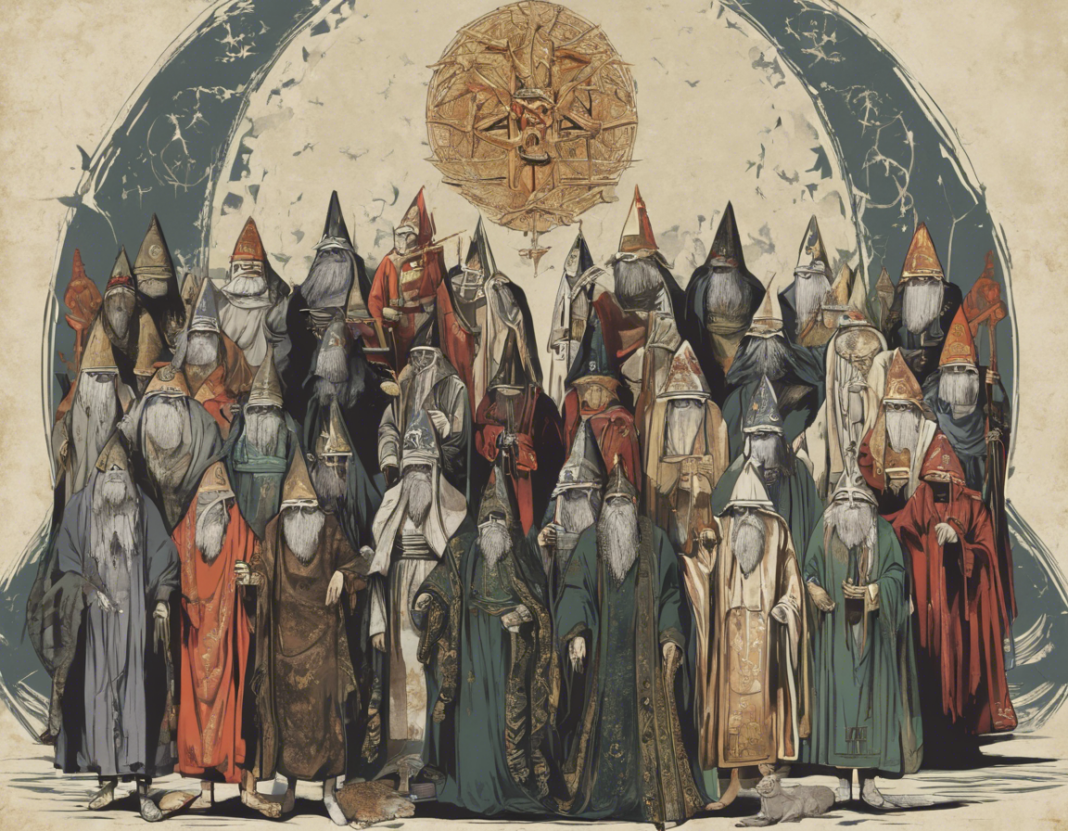Introduction
A sect leader is a pivotal figure within religious or spiritual groups who holds significant influence over their followers. Sect leaders are often seen as embodying divine authority and serving as a vessel for spiritual guidance. Throughout history, sect leaders have emerged in various religions and belief systems, shaping the beliefs, practices, and lives of their followers. In this article, we delve deep into the role of a sect leader, exploring the characteristics, responsibilities, and controversies surrounding these influential figures.
The Role of a Sect Leader
H2: Characteristics of a Sect Leader
Sect leaders possess a myriad of traits that set them apart as divine authorities within their respective groups. These characteristics often include:
-
Charisma: A sect leader is typically charismatic, possessing qualities that attract and captivate followers.
-
Authority: They wield a significant amount of authority within the sect, making decisions and setting guidelines that followers are expected to adhere to.
-
Spiritual Knowledge: Sect leaders often claim to possess deep spiritual insights and wisdom, providing guidance and interpretations of religious texts.
-
Mystical Experiences: Some sect leaders claim to have had mystical or divine experiences that validate their role as a spiritual leader.
-
Personal Magnetism: Their personal presence and energy can inspire devotion and loyalty among their followers.
H2: Responsibilities of a Sect Leader
Sect leaders carry a weighty burden of responsibilities within their communities. These responsibilities may include:
-
Teaching and Guidance: Providing spiritual teachings, guidance, and interpretations of sacred texts to followers.
-
Decision-Making: Making decisions on behalf of the sect, such as setting rules, resolving conflicts, and shaping the direction of the group.
-
Ceremonial Duties: Leading rituals, ceremonies, and other religious practices within the sect.
-
Moral Authority: Serving as a moral compass for followers, setting ethical standards and expectations for behavior.
-
Conflict Resolution: Mediating disputes and conflicts that may arise within the sect, maintaining unity and harmony among followers.
Controversies Surrounding Sect Leaders
H2: Abuse of Power
One of the most prevalent controversies surrounding sect leaders is the potential for abuse of power. With a position of authority and influence, some leaders may exploit their followers for personal gain, engage in inappropriate behavior, or manipulate them for their own ends. This abuse of power can have devastating consequences for followers and the reputation of the sect as a whole.
H2: Cults and Manipulation
In some cases, sect leaders have been associated with cult-like behavior, using manipulation and coercion to control their followers. This can lead to psychological and emotional harm among followers, as well as isolation from friends and family outside of the sect. It is essential for followers to be aware of the signs of manipulation and ensure that their relationship with the sect leader is built on mutual respect and boundaries.
H2: Financial Exploitation
Another common controversy is financial exploitation, where sect leaders may pressure followers into making significant financial contributions or donations to the sect. This can create a cycle of dependency and financial strain for followers, as well as raising questions about the leader's true motivations and intentions.
Navigating the Relationship with a Sect Leader
For followers involved in a sect, it is crucial to approach their relationship with the sect leader with a discerning eye. Here are some tips for navigating this complex dynamic:
- Maintain Critical Thinking: While respect for the sect leader is important, followers should maintain a sense of critical thinking and not blindly accept everything they say or do.
- Set Boundaries: Establishing boundaries in the relationship with the sect leader can help prevent manipulation and ensure a healthy dynamic.
- Seek Support: Reach out to friends, family, or mental health professionals if you have concerns about your relationship with the sect leader.
- Educate Yourself: Learn about cult dynamics, manipulation tactics, and warning signs of abuse to protect yourself from potential harm.
- Trust Your Instincts: If something feels off or uncomfortable in your interactions with the sect leader, trust your instincts and seek clarification or support.
FAQs: Frequently Asked Questions
1. What is the difference between a sect leader and a religious leader?
A sect leader typically leads a smaller, more exclusive religious group or sect, whereas a religious leader may have a broader following within a specific religion or denomination.
2. How can followers determine if a sect leader is genuine or potentially harmful?
Followers can assess a sect leader by observing their behavior, teachings, and the impact they have on followers. Warning signs include secrecy, manipulation, and a lack of transparency.
3. Is it common for sect leaders to claim divine authority?
Yes, many sect leaders claim to have received divine revelations, experiences, or guidance that validate their position as a spiritual leader.
4. What should followers do if they suspect abuse or manipulation by a sect leader?
Followers should reach out to trusted individuals, seek support from professionals, and consider distancing themselves from the sect if they feel unsafe or manipulated.
5. Can sect leaders have positive impacts on their followers and communities?
Yes, sect leaders can provide valuable guidance, support, and a sense of community for their followers when their intentions are sincere and their actions align with ethical principles.
In conclusion, the role of a sect leader is complex and multifaceted, encompassing both profound spiritual guidance and potential controversies. Followers must navigate their relationship with sect leaders with caution, awareness, and a strong sense of self-preservation. By understanding the characteristics, responsibilities, and pitfalls associated with sect leaders, individuals can make informed decisions about their involvement in a sect and protect themselves from harm or exploitation.

